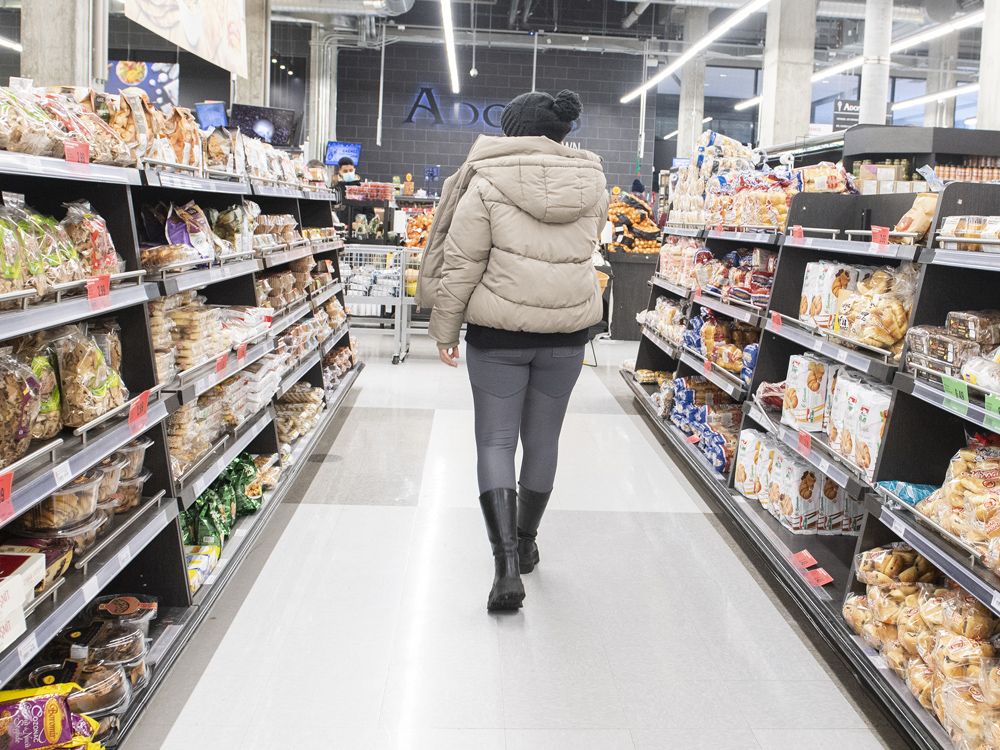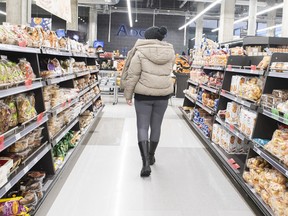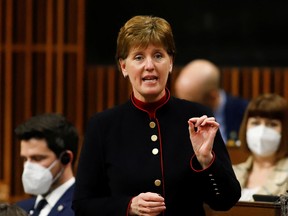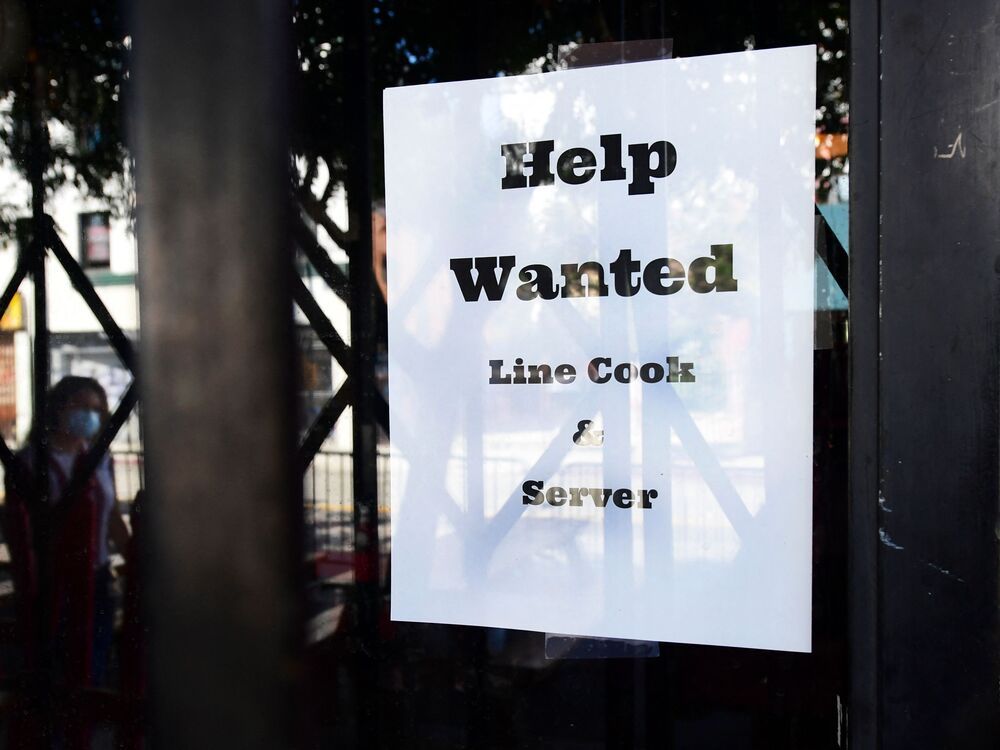Food industry wants Ottawa to intervene as grocery code of conduct talks bog down

Negotiations have blown past two government-imposed deadlines

Article content
Food industry leaders say the government may need to intervene to resolve differences over a national code of conduct for the grocery business, as they have failed to do so on their own after a year of trying.
Advertisement 2
Story continues below
Article content
Representatives of Canada’s biggest retail chains and food brands have been in formal talks since last summer, trying to write new rules that would stamp out power imbalances and abusive tactics in Canada’s food supply chain. The negotiations have blown past two government-imposed deadlines, and now, the negotiators say they’re at odds on some key areas, including which products and companies should be subject to the rules.
“We acknowledge we are at a critical juncture,” a group of executives from 10 trade associations, who are leading the discussion on the code, wrote in a report to government this week. “We may require government intervention to assist us in moving the process forward.”
But government intervention would be complicated and time-consuming. The federal government has already decided that regulating the grocery industry is outside its jurisdiction, leaving it up to the provinces and territories to create their own set of rules. Industry advocates are afraid that scenario would end in disaster, forcing global food companies and national retail chains to wade through a mess of different provincial regulations.
Advertisement 3
Story continues below
Article content
We acknowledge we are at a critical juncture
Some in the industry, including the head of one of Canada’s largest supermarket chains, aren’t eager to wait much longer. Michael Medline, CEO of Sobeys’ parent company Empire Co. Ltd., said late last year that he believed a code could help tamp down the inflation crisis in food retail. “It’s taking too long,” he said. “Let’s get at it.”
The trade associations presented their report this week at the semi-annual meeting of federal, provincial and territorial agriculture ministers — a major event in the Canadian food business, known as the FPT meeting. In that report, the trade groups asked the ministers to impose one last deadline, for November 2022. If they don’t have a code of conduct by then, the industry wants government to “assist in guiding the Code to its conclusion,” the report said.
Advertisement 4
Story continues below
Article content
Federal Agriculture Minister Marie-Claude Bibeau said she’s confident the industry can still reach an agreement on a code of conduct by November.

“It is important that the solution come from the industry,” Bibeau said at a news conference on July 22, at the close of the FPT meeting in Saskatoon. “But they know that we are taking this seriously and we want a solution to this situation.”
Bibeau and her counterparts have been pushing for change in the grocery industry since 2020, when tensions between grocers and their suppliers intensified during the first waves of the pandemic.
For years, food producers have complained about the fees and fines they’re forced to pay the big grocers. The agriculture ministers investigated those fees and found they could eat up 15 to 40 per cent of a manufacturer’s sales, including up to $1,200 per delivery in late fines and $500 per pallet in unloading fees.
Advertisement 5
Story continues below
Article content
Suppliers said the grocers took the fees to another level in the pandemic.
It is important that the solution come from the industry
Marie-Claude Bibeau
Walmart Inc. and Loblaw Companies Ltd. both started charging fees to suppliers to help pay for their investments in e-commerce. The retailers said the investments would lead to higher sales volumes for suppliers. But food manufacturers said it was unheard of to be forced to pay for another company’s capital expenditures. Some chains were also accused of charging late fines and penalties for short shipments, at a time when many suppliers were dealing with COVID-19 outbreaks in their facilities.
Many in the industry believe the solution is a code of conduct, similar to a model used in the United Kingdom to rein in bully tactics in the country’s concentrated grocery market.
Advertisement 6
Story continues below
Article content
In July 2021, the agriculture ministers appointed a mediator to facilitate talks between the 10 trade associations representing grocers and suppliers. At the time, Quebec Agriculture Minister André Lamontagne said if the industry couldn’t come up with a solution by the end of 2021, the government would step it.
-

Milk prices are going up again as critics say dairy decisions too secretive
-

Sobeys’ parent Empire boosts dividend after growing profits in latest quarter
-

‘We’re playing offence now’: Saputo planning more price hikes as profits slump
But when it was clear the committee of trade associations wouldn’t hit its year-end deadline, the ministers set a new one, asking for a “concrete proposal” by March 2021. But again, no proposal arrived.
Advertisement 7
Story continues below
Article content
At that point, the committee decided it needed some real-world perspectives, and asked executives from some of the top retailers and food brands to weigh in on the code. Those companies included PepsiCo Inc., Unilever Plc, and Danone S.A., as well as Loblaw, Empire and Metro Inc.
After consultations with the companies, the committee said it had reached a consensus on several parts of the code, including rules on having written agreements — which is notable in an industry where handshake deals are common.
But in its report this week, the committee said it still needs to resolve a range of issues, including how the code deals with “payments, deductions, fines and fees” and who the rules should apply to.
“At this stage, there’s no reason for me to speculate on what will happen if they don’t agree,” Lamontagne said on July 22. “I take for granted they will agree.”
• Email: [email protected] | Twitter: jakeedmiston
Advertisement
Story continues below








